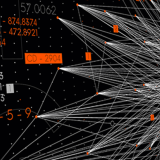EU context
Politiska beslutsfattare behöver få kunskaper som hjälper dem att hantera frågor om effektiv reglering, hur det sociala skyddet i dess vidaste bemärkelse kan tillgodoses och hur man kan balansera kraven från företag, samhällen och enskilda när det gäller att utnyttja den stora potential som digitaliseringen erbjuder.
Europeiska kommissionen antog sin strategi för en inre digital marknad för Europa 2015 och lyfte fram den som en av sina politiska prioriteringar. Strategin kan skapa digitala möjligheter för medborgare och företag och dess mål är att stärka EU:s ställning som världsledande i den digitala ekonomin. Strategin är tänkt att öka tillgången till information, leda till jobb för dem som har rätt digitala färdigheter och omvandla de offentliga tjänsterna. Eftersom delningsekonomin ökar runtom i EU försöker kommissionen att uppmuntra utvecklingen av nya och innovativa tjänster och samtidigt se till att det finns lämpliga skyddsåtgärder. I kommissionens meddelande om den europeiska agendan för delningsekonomin 2016 klargörs bestämmelserna och de politiska rekommendationerna på detta område för medborgare, företag och medlemsstaterna.
Eurofounds arbete
Eurofound undersöker de bredare konsekvenserna för arbetsvillkoren, arbetslagstiftningen och bortom detta till följd av den ökande omfattningen och spännvidden av digitala tekniker på arbetsmarknaden.
Effekterna på sysselsättningen som banbrytande teknologi har på tjänsteområdet håller på att utredas. Eurofound undersöker också konsekvenserna av plattformsekonomin för arbetsmarknaden, och i synnerhet s.k. crowd employment (utkontrakteringen av arbetsuppgifter via internet till en grupp arbetstagare). Vidare fortsätter forskningen om arbets- och anställningsvillkoren för IKT-baserade mobila arbetstagare.
Arbetets och sysselsättningens art i den digitala åldern kommer att undersökas och fokus ligger på
Viktiga bidrag
I en rapport framtagen tillsammans med Internationella arbetsorganisationen (ILO) på temat ”arbete när som helst och var som helst” har man undersökt effekten av distansarbete och IKT-mobilt arbete på valda delar av arbetsvillkoren.
Eurofounds seminarieserie ger regeringar, fackföreningar och arbetsgivare möjlighet att diskutera utvecklingen av EU:s social-, sysselsättnings- och arbetsmarknadspolitik. Under 2016 var seminarieserien inriktad på effekterna av digitaliseringen på arbete och framtagningen av nationella agendor för bättre genomförande av digitala förändringar.



































